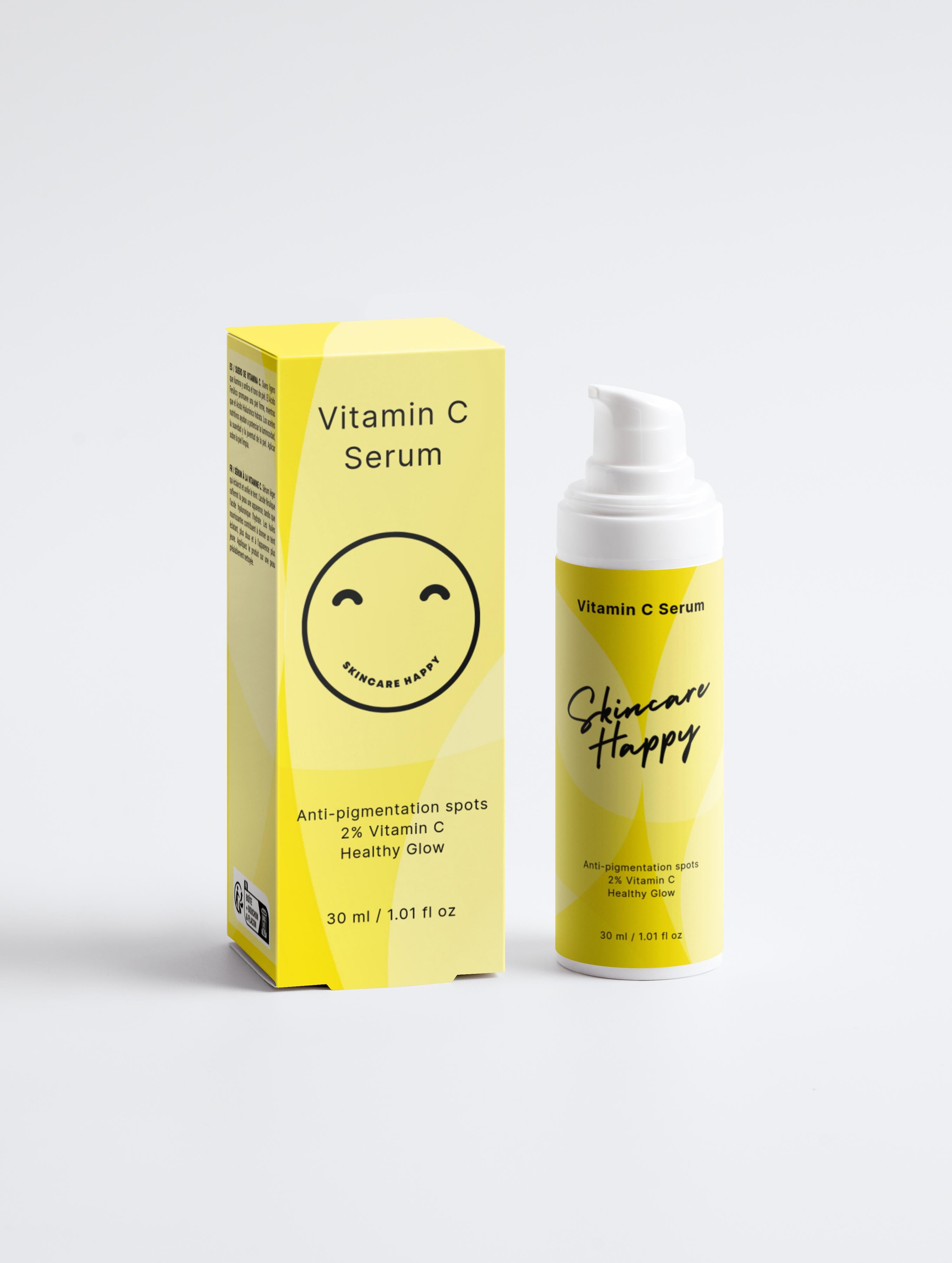If you’re even slightly into skincare, chances are you’ve heard of Vitamin C serum. But what’s all the hype about? And is it really worth adding to your routine?
At SkincareHappy.com, we’re here to break it all down—from what it is to how it transforms your skin—so you can decide if it’s time to glow up your skincare game.
I. Introduction
A. What Is Vitamin C Serum?
Vitamin C serum is a lightweight, fast-absorbing skincare product packed with a concentrated form of Vitamin C—a potent antioxidant known for its skin-brightening, anti-aging, and protective properties.
B. Why It Matters for Skin Health
Vitamin C helps fight off damage from sun exposure, pollution, and other environmental stressors. It also supports your skin’s natural healing process and promotes a smoother, more radiant complexion.
C. What This Blog Covers
In this post, we’ll dive into:
-
What Vitamin C serum is and why it’s different
-
How it benefits your skin (spoiler: in so many ways!)
-
How to choose the right one
-
How to use it safely and effectively
Let’s get glowing.
II. What is Vitamin C Serum?
A. A Quick Definition
Vitamin C serum is a topical treatment that delivers a potent dose of vitamin C directly to your skin. Think of it as a daily multivitamin—for your face.
B. Types of Vitamin C Used in Serums
Not all Vitamin C is created equal. Common forms include:
-
L-Ascorbic Acid: The most potent and researched form
-
Sodium Ascorbyl Phosphate: More stable, great for sensitive skin
-
Magnesium Ascorbyl Phosphate: Hydrating and gentle
C. What Makes It Unique?
Unlike creams or cleansers, serums penetrate deeper into the skin and deliver highly concentrated active ingredients. Vitamin C serum works beneath the surface to protect, correct, and perfect.
III. Benefits of Vitamin C Serum for Radiant Skin
A. Powerful Antioxidant Properties
1. Protection Against Free Radicals
Vitamin C fights oxidative stress caused by UV rays, pollution, and blue light—reducing inflammation and cellular damage.
2. Prevention of Premature Aging
By neutralizing free radicals, Vitamin C helps reduce fine lines, wrinkles, and sagging skin before they even start.
B. Brightening and Lightening Effects
1. Reduces Dark Spots & Hyperpigmentation
Vitamin C inhibits melanin production, helping to fade dark spots, acne scars, and sun damage.
2. Evens Out Skin Tone
Over time, it visibly reduces discoloration, leaving your complexion more balanced and radiant.
C. Collagen Production
1. Stimulates Natural Collagen Synthesis
Collagen = firmness. Vitamin C supports the production of collagen, which keeps your skin plump and youthful.
2. Improves Elasticity
More collagen means more bounce and fewer visible signs of aging.
D. Hydration and Moisturization
1. Locks in Moisture
Some forms of Vitamin C (like MAP) have hydrating properties and work well with hyaluronic acid.
2. Smoother Skin Texture
Consistent use leads to a softer, more refined skin surface.
IV. How to Choose the Right Vitamin C Serum
A. Check the Concentration
-
2-10%: Great for beginners and sensitive skin
-
10-20%: Effective for most users
-
20%+: High potency, can cause irritation if overused
B. Look at Other Ingredients
Look for complementary ingredients like:
-
Ferulic acid & Vitamin E: Boosts stability and effectiveness
-
Hyaluronic acid: Adds hydration
-
Niacinamide: Pairs well to fight dark spots
C. Pay Attention to Packaging
Vitamin C degrades with light and air. Look for:
-
Opaque or amber glass bottles
-
Air-tight pumps
-
Refrigerated options for extra shelf-life
D. Match It to Your Skin Type
-
Dry/Sensitive: Lower concentration, hydrating formula
-
Oily/Acne-Prone: Lightweight, oil-free base
-
Combination: Balanced, serum-gel hybrids
V. Incorporating Vitamin C Serum into Your Skincare Routine
A. Step-by-Step Guide
-
Cleanse
-
Tone (optional)
-
Apply Vitamin C Serum (just a few drops)
-
Moisturize
-
SPF (a must!)
B. Frequency of Use
Start with 3x/week and build up to daily use. Morning is ideal to protect against environmental stressors throughout the day.
C. What to Avoid
Don’t pair with benzoyl peroxide or strong AHAs/BHAs unless your skin is used to it. Alternate days if needed.
VI. Potential Side Effects and Precautions
A. Skin Sensitivity
Some people experience slight tingling or redness. Always patch test first.
B. Allergic Reactions
Rare, but if you see swelling or hives, discontinue use and consult a dermatologist.
C. Product Interactions
Mixing with strong actives can cause irritation. When in doubt, layer gently and space out actives.
VII. Real-Life Results and Testimonials
Before & Afters
-
“Dark spots faded in just 3 weeks!”
-
“My skin tone looks so much brighter and even.”
Customer Love
“I didn’t know my skin could glow like this. I get compliments all the time!” — Jessica, Verified Buyer
VIII. Conclusion
A. Recap of the Benefits
From brightening and anti-aging to protecting and hydrating, Vitamin C serum is truly a multi-tasking hero.
B. Final Thoughts
If your skincare routine feels like it's missing something, Vitamin C might be the game-changer you need.
C. Our Recommendation
Explore our dermatologist-approved picks and get glowing—the happy way—at SkincareHappy.com.
IX. Additional Resources
A. Skincare Experts to Follow
-
@TheSkinScientist
-
@GlowDermMD
-
@DrSimoneSkincare
X. References
-
Dermatology Times: “Topical Vitamin C in Skin Health”
-
NIH: “Ascorbic Acid and Skin Collagen”
-
Journal of Clinical and Aesthetic Dermatology










0 comments